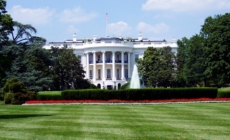-
Donald Trump’s Osama Bin Laden Comments Raise Eyebrows - 9 mins ago
-
3% Fixed-Rate Loans Announced for Businesses - 21 mins ago
-
How to detect and remove malware from your infected Mac computer safely - 32 mins ago
-
NASCAR Playoff Rankings: Is Denny Hamlin the Driver to Beat Entering Round of 8? - 41 mins ago
-
Major Match Reportedly Planned For WWE Crown Jewel - 49 mins ago
-
Denise Richards’ ex names Charlie Sheen, Brandi Glanville as divorce witnesses - 51 mins ago
-
Hamas and Israel set for Trump’s Gaza plan peace talks in Egypt - 52 mins ago
-
Power Demonstration: Foreign Politicians March at Pécs Pride - 54 mins ago
-
Tyler Skaggs’ family, Angels face off in civil trial worth millions - about 1 hour ago
-
Tigers’ Spencer Torkelson hits two-RBI double to tie score against Mariners - about 1 hour ago
Mahmoud Khalil Could Be Deported to Syria or Algeria: What To Know
An immigration judge in Louisiana has ordered Palestinian activist Mahmoud Khalil—a legal permanent resident of the U.S.—to be deported to Syria or Algeria after failing to disclose certain information on his green card application.
According to documents filed in federal court on Wednesday, Khalil’s lawyers intend to appeal the deportation order, but they have expressed concern that the appeal process will likely be swift and unfavorable, as the case becomes a test of how far the Trump administration can push immigration law in pursuit of its foreign policy and domestic security agenda.
Newsweek contacted lawyers for Khalil and the Department of Homeland Security for comment via email outside normal office hours on Thursday.
Why It Matters
Khalil’s case sits at the crossroads of immigration law, executive power and free speech. His lawyers argue that he is being punished for pro-Palestinian activism, while the Trump administration frames his removal as a matter of national security and the result of paperwork violations.
The outcome could determine how far the government can go in using immigration law to target political dissent, raise new questions about fairness in immigration courts and set precedent for the rights of lawful permanent residents engaged in controversial advocacy—all while deciding the fate of Khalil, who is married to a U.S. citizen and has a newborn son.
Matthew Hinton/AP
What To Know
Khalil, a Palestinian originally from Syria, is an activist and former Columbia University graduate student who was arrested in March at his home in Manhattan.
Federal officials placed him in detention in Louisiana under a provision of immigration law that permits removal if the secretary of state determines that a noncitizen’s presence “would compromise a compelling foreign policy interest.” Secretary of State Marco Rubio made that determination earlier this year, citing Khalil’s advocacy.
In June, U.S. District Judge Michael Farbiarz blocked removal on those grounds, finding that Khalil was likely to succeed in arguing that the order was unconstitutional retaliation.
He later ordered Khalil’s release, concluding he was neither a flight risk nor a danger to the community.
The government then pursued an alternative case against Khalil, alleging that he failed to disclose employment and organizational affiliations on his green card application.
In September, immigration Judge Jamee Comans ordered Khalil removed to Syria or Algeria on this basis, denying his requests for a hearing, an extension of time and a routine change of venue to New York, where he resides.
Khalil’s attorneys, led by the American Civil Liberties Union and the Center for Constitutional Rights, argued in a September 17 filing that the decisions “represent a substantial threat to Petitioner’s liberty, family integrity and if ultimately removed, his physical safety.”
They said Khalil had an American wife and infant son and warned that deportation to Syria or Algeria could expose him to severe risk.
The lawyers also highlighted what they described as an unusually accelerated process. “The only meaningful impediment to Petitioner’s physical removal from the United States would be this Court’s important order prohibiting removal during the pendency of his federal habeas case,” they wrote to Farbiarz.
They expressed little confidence in appellate relief, citing data that the Fifth Circuit Court of Appeals “almost never” grants stays of removal to noncitizens.
Rarely Used Immigration Law Provisions
The Trump administration has defended its actions as necessary to national security. Assistant Homeland Security Secretary Tricia McLaughlin, responding to Khalil’s release in June, called it “yet another example of how out of control members of the judicial branch are undermining national security.”
A June report by the New York City Bar Association documented the administration’s reliance on rarely used provisions of immigration law to pursue removals, including invoking the Alien Enemies Act and broad foreign policy powers.
The report warned that such measures “test the limits of executive power” and risk chilling constitutionally protected speech.
What People Are Saying
U.S. District Judge Michael Farbiarz, recognizing the potential First Amendment violation, said: “There is at least something to the underlying claim that there is an effort to use immigration proceedings here to punish the petitioner here, and of course that would be unconstitutional.”
Mahmoud Khalil said in a statement following the deportation order: “It is no surprise that the Trump administration continues to retaliate against me for my exercise of free speech. Their latest attempt, through a kangaroo immigration court, exposes their true colors once again.”
What Happens Next
Khalil’s lawyers are expected to appeal the immigration judge’s September 12 deportation order to the Board of Immigration Appeals, a process they expect to be swift and unfavorable. The outcome of that case will likely decide whether he can remain in the United States or be deported to Syria or Algeria. If the BIA affirms, Khalil will lose his permanent residency and be subject to a final removal order, with few legal options left.
Source link






























